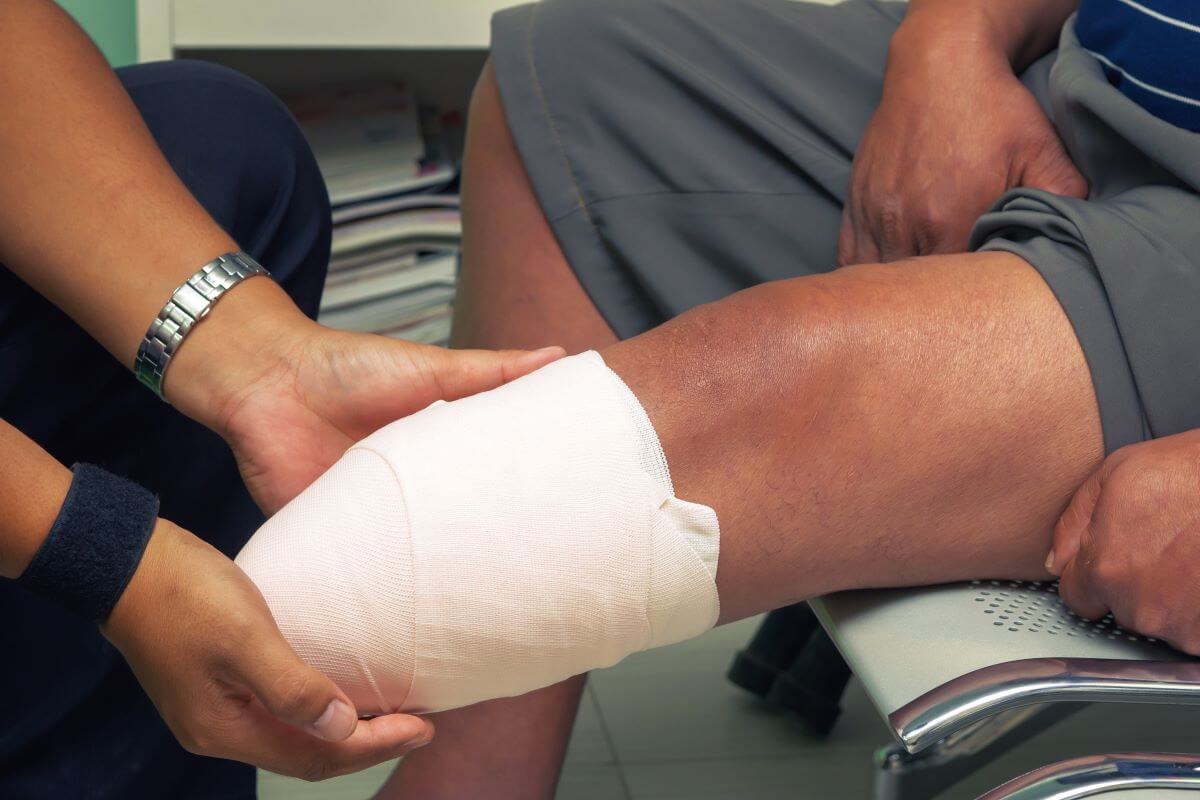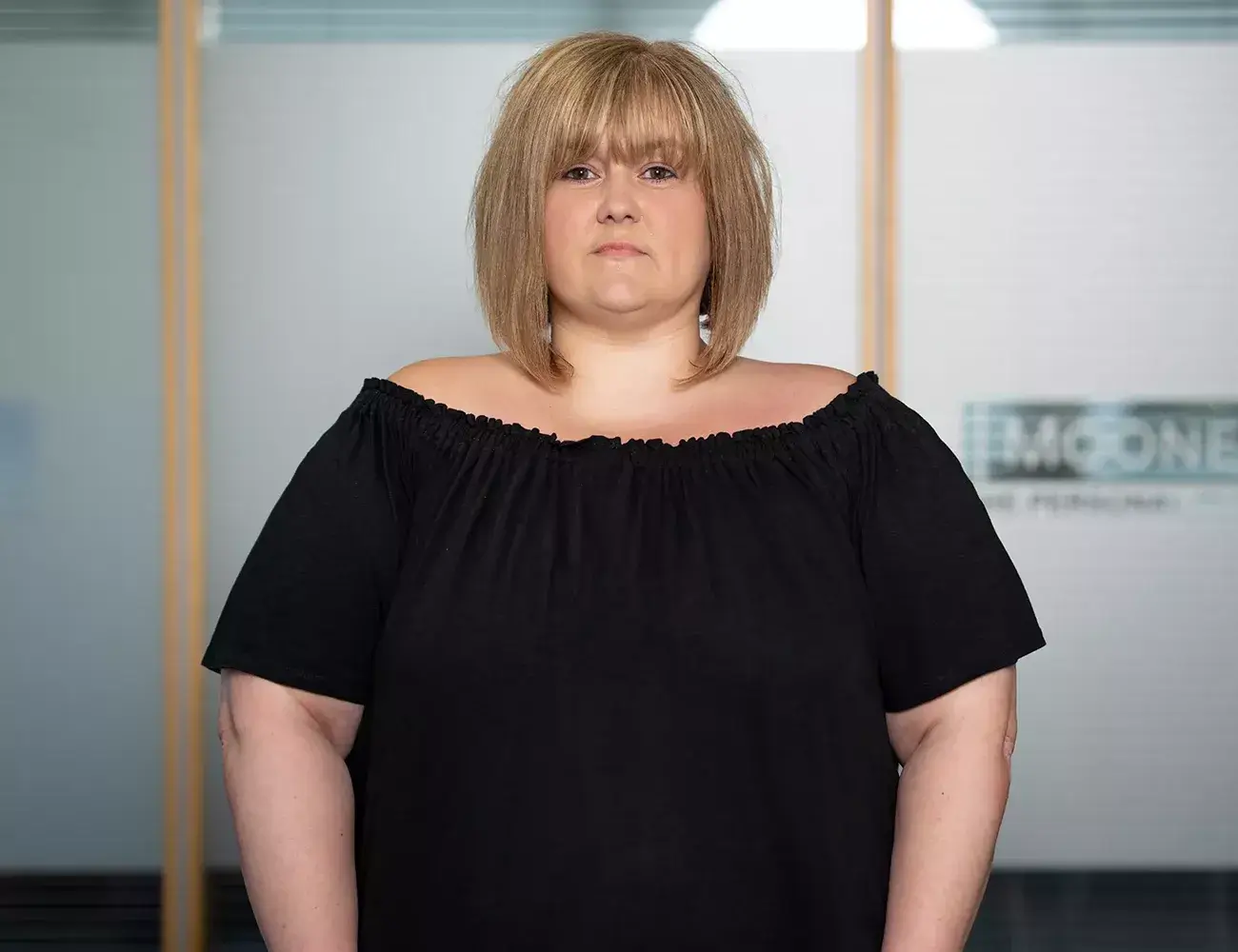Amputation and Limb Damage Claims
There were 27,465 lower limb amputations during the period from 2015 to 2018, in England alone.
When an amputation is the fault of another – whether that be from an accident at work, a road traffic accident, another type of accident or as a result of negligence by a medical professional, the injured victim may be able to bring an amputation compensation claim against the person or persons responsible.
Why would I consider making an amputation compensation claim?
We are fully aware that to some, the thought of making a personal injury claim following the loss of a limb might seem the last thing anyone would want to think about. However, when the cause of amputation is an accident that was someone else’s fault or as a result of medical negligence, then it is only right that the party responsible for limb loss is held accountable and compensation is paid.
What is amputation?
Amputation is the process of removing a limb from the body. There are two types of amputation – surgical amputation and traumatic amputation.
Surgical Amputation – this is amputation carried out when:
- The limb has become infected with gangrene, a condition where the body tissue has started to decay and die. This happens due to a loss of blood supply to the limb.
- The limb poses a serious risk to a person’s health because it has become seriously infected or because of cancer.
Traumatic Amputation – this occurs when the limb becomes wholly or partially severed as a result of a very large amount of force being applied to it. Road traffic accidents and accidents at work are the most common causes of traumatic limb amputation. Sometimes an accident can cause such severe limb damage that surgical amputation is later required at a hospital.
In what circumstances can I make an amputation compensation claim?
In cases of:
- amputation injury as a result of a road traffic accident or an accident at work where the accident was the fault of another party to the accident.
- amputation as a result of negligent treatment by a medical professional. i.e. as a result of clinical negligence. Mismanagement of diabetes by medical professionals is one of the causes of foot amputations.
What are the most common types of amputation or limb loss?
- Leg – above or below the knee
- Feet
- Arms – above the elbow or at the elbow
- Hands and fingers
What if I was partly to blame for the accident that caused me to suffer traumatic limb amputation?

What are the types of amputation compensation that can be claimed for?
Compensation claims for damages for pain and suffering – this is compensation that the responsible (negligent ) party will pay to you for the injury side of your claim. The range of compensation for pain and suffering depends on whether the amputation is partial or total, of multiple limbs or just one and which limb is affected.
The costs of prosthetics – a prosthesis is an artificial, substitute or replacement part of a body, such as a limb.
Fantastic strides have been made in producing state of the art artificial limbs both in terms of cosmetic advancement and functionality. Prosthetic limbs can be extremely costly, but it will be possible to claim the cost of the prosthesis, and all fitting and other associated costs as a part of the claim.
It is possible for an amputee to use multiple prostheses – one for everyday use and others for specialist use e.g., if the amputee was a keen motorcyclist but had lost an arm as a result of an accident, they may be able to have a specialist ‘bike arm’ prosthesis which would allow them to operate a specially adapted trike (the cost of which could also be included as part of the claim).
Prostheses have a limited life span of 3 – 5 years on average. Therefore, the claim may include amounts to cover the costs of multiple prostheses having to be purchased by the amputee throughout the rest of their life.
Cost of adapting an existing home or cost of moving home
Home (and vehicle) adaptations may be necessary as a result of amputation. As long as expert evidence is obtained to back up the specific need for the adaptations proposed, then the costs estimates for the necessary adaptation work can be claimed back.
Circumstances may dictate that the existing home is not adequate for the injured person’s current needs and in some circumstances, it may be possible to include the cost of moving home as part of the claim.
These are complex issues and another example why anyone wishing to make an amputation compensation claim is strongly advised to seek out the assistance of an experienced, specialist firm of serious and catastrophic injury solicitors, like Mooneerams solicitors.
- Rehabilitation costs
- Costs of retraining for a new career
- Therapy costs
- Cost of medical treatment to date and ongoing as necessary
- Loss of earnings claims if you have been unable to work as a result of the accident that caused your injury – both past and future if applicable
Your amputation claim – why choose Mooneerams solicitors ?
If you have suffered the tragedy of losing a limb as a result of an accident or medical negligence, it’s of the utmost importance that you choose the right solicitor to provide legal advice and act for you to help you recover the maximum compensation possible.
First of all, it’s vital that you appoint a specialist solicitor who has extensive experience of successfully taking on catastrophic injury cases and winning them (either at court or by negotiated settlement)!
Mooneerams Director, Angus Fergusson is a vastly experienced serious injury solicitor with over 20 years’ experience of dealing with personal injury cases of the most severity. He is a member of the Association of Personal Injury Lawyers (APIL).
Angus is not only an excellent personal injury solicitor, but he also understands that his clients are at the most vulnerable and difficult time in their lives in many cases. His empathetic but supremely professional approach to serious injury claims, has brought him much praise from his clients, who are reassured by his calm, unflappable manner.
Angus leads a team of solicitors who share his ethos of client care, combined with superb legal technical skills, to ensure that they achieve the best possible result for their personal injury clients.
How do I get my amputation claim started?
Call us on 029 2048 3615 (or leave your contact details in the box on this page and we’ll call you back).
- We’ll talk with you about the accident and the circumstances that you now find yourself in. We’ll keep the initial discussion as brief or long as you would like it to be.
- If we think you have reasonable prospects of being able to make a claim, we’ll then arrange to come out and discuss the accident and your potential claim in more detail.
- We’ll come out to your home, the hospital or wherever is most convenient to you to discuss the claim with you.
- We will look at how your claim can be funded. In most cases, we’ll be able to take on your claim using a No Win, No Fee agreement (Conditional Fee Agreement).
- We’ll talk you through the claims process.
- We’ll then take the necessary steps to start your claim.
- Throughout, we’ll be assisted by the best medical and other experts who themselves will all be working towards a common goal. Together, we will work as a team to ensure that we achieve the best outcome possible, for you.
- Amputation claims are, by their very nature, complex matters to deal with, so the matter will not settle quickly. However, our aim will be to get the other side to admit responsibility for the accident or admit their negligence, as quickly as possible. We’ll then make applications to get interim payments (payments on account) for you at suitable intervals, to make sure that you aren’t suffering any financial hardship whilst the claim goes on. Alternatively, an interim payment may be needed when specific items are required to aid your recovery.
- We’ll be there with you all the time, right through to the end when we have either settled your claim or obtained compensation for you at a court hearing.
How long do I have to make a claim?
As with most personal injury claims, your amputation claim has to have been started within 3 years from the date the accident or negligence took place. There are two exceptions to this time limit.
a) If the claim is being made for someone under 18 years of age, the 3-year period won’t start until they reach their 18th birthday.
b) If the person making a claim is someone who doesn’t have the necessary mental capacity claim for themselves, then the 3-year period will not begin until they have that mental capacity.
No Win, No Fee amputation or limb damage claims
By entering into a No Win No Fee agreement with us you’ll have one less thing to worry about. If your claim is successful, the other party (the negligent party), will pay your compensation and most of our costs.
You will only pay us any of the legal costs that the other side doesn’t pay and that will simply be deducted from your compensation as agreed before your claim starts.
With the benefit of a No Win No Fee claim, there will nothing to pay, either to us or to the other side, should your claim not be successful. Call Mooneerams now on 029 2048 3615. You’ll speak to an experienced personal injury solicitor when you call. What you discuss with us will be entirely confidential.
It’s vitally important that you make the right choice when choosing an amputation claims solicitor. As soon as you speak to one of our experienced serious injury solicitors, here at Mooneerams, you’ll know you’ve made the right choice. If you would like to talk to Angus or one of his personal injury team, call now on 029 2048 3615 or complete the form on this page and we’ll call you back at a time to suit you.






















